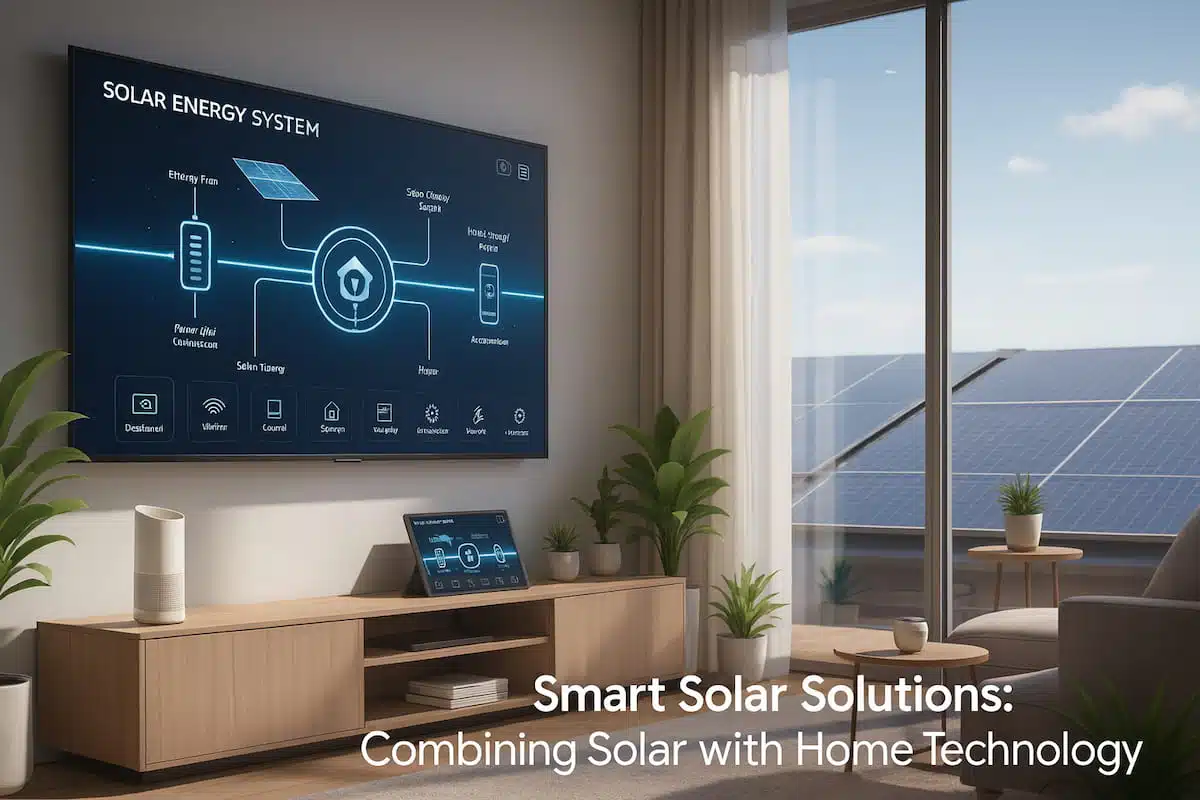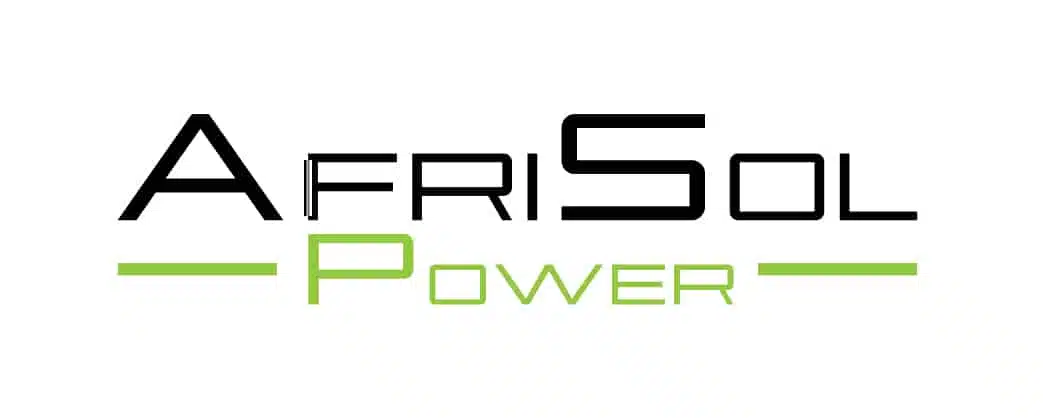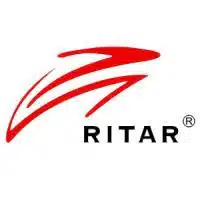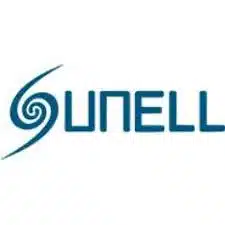Blogs
Smart Solar Solutions : Combining Solar with Home Technology

Smart Solar Solutions are transforming the way homeowners approach energy consumption. Solar energy has become one of the most popular and reliable renewable energy sources in the UK. As more homeowners invest in solar panels to reduce energy costs and support environmental sustainability, it’s essential to understand that proper maintenance plays a key role in ensuring optimal performance over time.
What Are Smart Solar Solutions?
Smart solar solutions combine solar energy systems with advanced home automation technologies. These systems allow homeowners to generate, store, and manage solar energy more efficiently using connected devices and sensors. Integrating solar power with smart technology enables features like real-time energy monitoring, automatic control of energy use, and optimization of solar generation based on weather conditions and electricity demand.
Smart solar systems typically include the following components:
-
Solar Panels: These convert sunlight into electricity, which is either used directly or stored in batteries.
-
Inverters: These devices convert the direct current (DC) electricity generated by solar panels into alternating current (AC), which powers household appliances.
-
Battery Storage: Solar batteries store excess energy generated during the day for use at night or during power outages.
-
Smart Controllers: These are the central hubs that control energy flow, monitor usage, and allow users to interact with their solar system remotely.

How Smart Solar Solutions Benefit Homeowners
Integrating solar power with smart home technology offers several benefits that go beyond simply reducing electricity bills. Here are the key advantages of adopting smart solar solutions:
1. Real-Time Energy Monitoring
One of the most significant advantages of integrating solar power with smart home systems is real-time energy monitoring. Homeowners can track their solar system’s performance through mobile apps or web dashboards, allowing them to monitor energy production, usage, and storage. This level of transparency helps optimize energy consumption, ensuring that solar energy is used efficiently.
With real-time data, homeowners can:
-
Identify energy wastage: By tracking energy use throughout the day, they can identify areas where energy is being wasted, allowing them to make informed adjustments.
-
Optimize energy storage: Homeowners can manage how much energy is stored in the solar batteries, ensuring that there is enough power for nighttime use or periods of low solar generation.
2. Improved Energy Efficiency
Smart home technology allows homeowners to automatically adjust energy use based on specific conditions. For example, smart thermostats can optimize heating and cooling based on energy availability, ensuring that energy-intensive systems operate when solar generation is at its peak. Smart lighting systems can also be programmed to switch off when not in use or adjust according to the time of day.
By reducing energy wastage, smart solar solutions help homeowners maximize their savings while minimizing their environmental impact.
3. Better Control and Automation
With smart home integration, homeowners have greater control over their solar systems. For instance, they can set schedules for when solar power is used, such as running appliances like washing machines or dishwashers during the day when solar energy is abundant. Similarly, they can adjust the temperature settings of their homes using a smartphone app, even when they’re away from home.
Automated controls also allow for seamless integration between solar panels, inverters, batteries, and other smart devices. For example, if solar production is high, the system can automatically charge the batteries, ensuring that excess energy is stored for later use. Conversely, when solar generation is low, the system can pull power from the grid or switch to battery storage.
4. Increased Energy Independence
Smart solar solutions provide homeowners with the ability to become more energy-independent. With a fully integrated system, homeowners can rely less on the national grid, reducing their exposure to rising electricity prices and power outages. This is particularly beneficial in regions like Ghana, where power cuts are not uncommon.
By storing excess energy in batteries and optimizing solar energy use, smart solar systems ensure that homeowners have access to clean, reliable energy at all times, without worrying about power shortages or the instability of the grid.
5. Cost Savings
While the initial cost of installing a smart solar system may be higher than a traditional solar system, the long-term savings are significant. By maximizing energy efficiency, homeowners can dramatically reduce their electricity bills. The ability to store excess energy for later use ensures that the household relies less on grid power, further reducing costs.
Additionally, many governments and financial institutions offer incentives and subsidies for solar installations, which can help offset the upfront costs. In Ghana, initiatives such as the Renewable Energy Act provide financial support and tax exemptions for individuals and businesses that invest in solar energy systems.
Key Technologies in Smart Solar Solutions
Several technologies enable the seamless integration of solar power with smart home systems. Some of the key technologies include:
1. Smart Inverters
Smart inverters are more advanced than traditional inverters. These devices not only convert DC to AC power but also provide detailed data on energy production, consumption, and battery status. Smart inverters can communicate with mobile apps, giving homeowners the ability to monitor their solar system’s performance remotely.
2. Energy Management Systems (EMS)
An energy management system is the brain of a smart solar system. It collects data from solar panels, inverters, and batteries, then processes the information to optimize energy consumption. An EMS can control devices such as lights, air conditioning, and even appliances to ensure they operate when solar energy is available.
3. Solar Batteries with Smart Controls
Solar batteries store excess energy generated by solar panels. With smart controls, these batteries can be managed efficiently, ensuring that stored energy is used when needed most. For example, during power outages or at night, the system can draw from the battery rather than the grid.
4. Smart Thermostats and Lighting Systems
Smart thermostats and lighting systems help optimize energy use throughout the home. For example, smart thermostats can adjust the temperature based on solar energy availability, while smart lighting systems can automatically turn off when no one is in the room or adjust brightness based on the time of day.
Conclusion: The Future of Solar Energy in Ghana
The integration of solar power with smart home technology offers homeowners in Ghana a unique opportunity to reduce their energy bills, improve energy efficiency, and achieve greater energy independence. As solar energy becomes more affordable and accessible, the adoption of smart solar solutions will play a crucial role in building a sustainable and energy-efficient future.
By embracing smart solar systems, homeowners can contribute to reducing Ghana’s carbon footprint while enjoying long-term financial savings. As more homes adopt these technologies, the future of solar energy in Ghana looks bright — clean, reliable, and more efficient than ever before.























